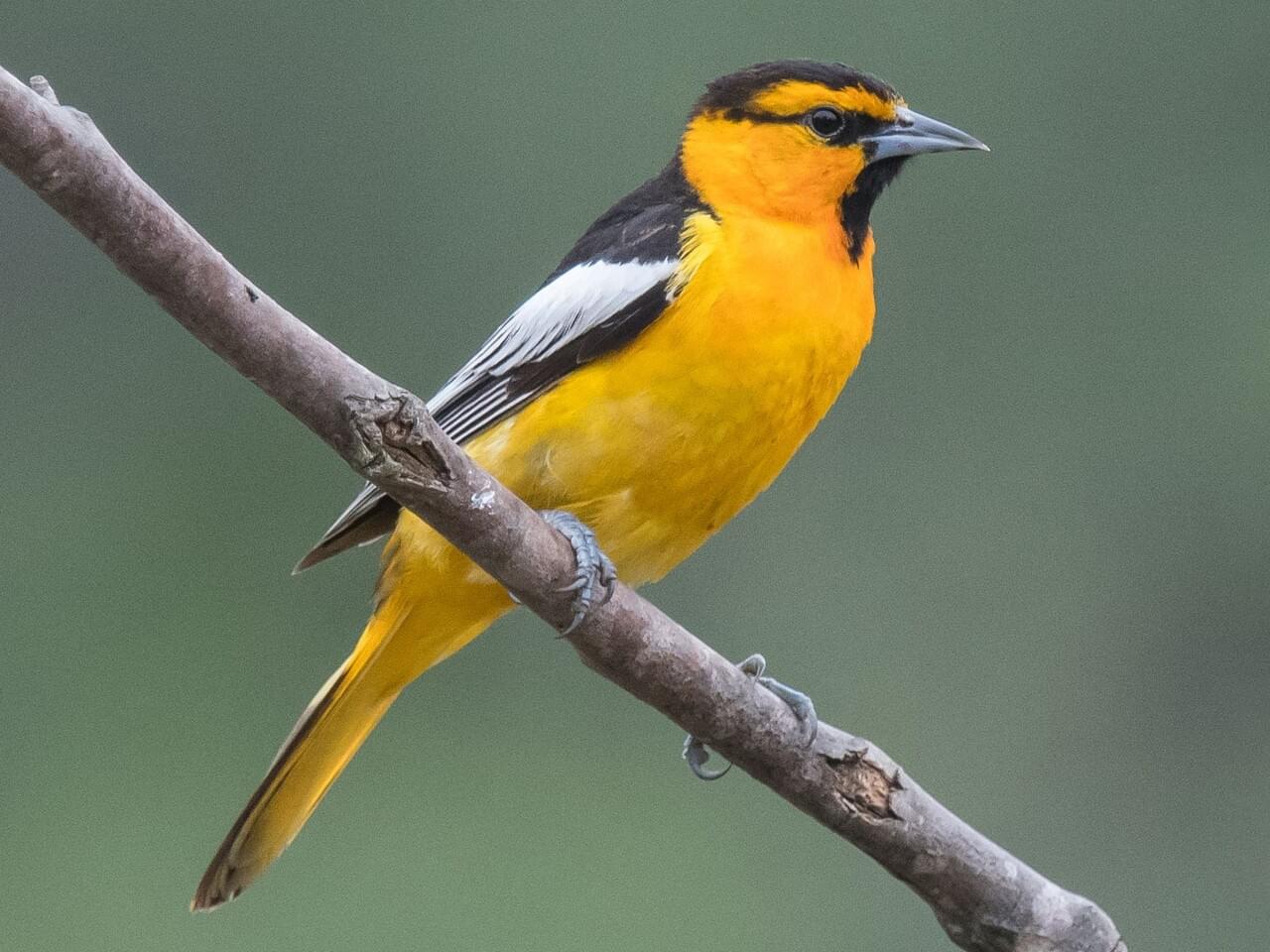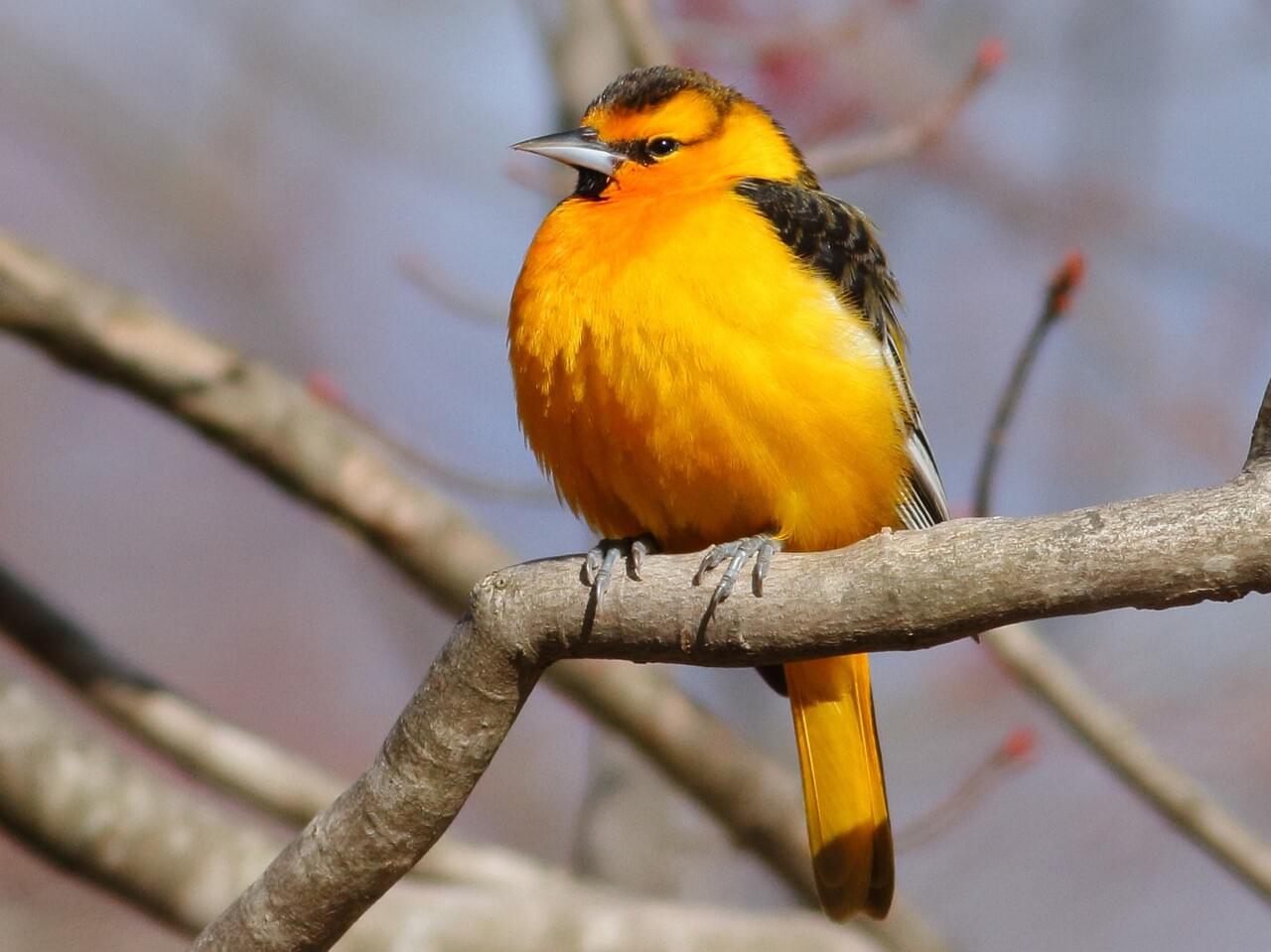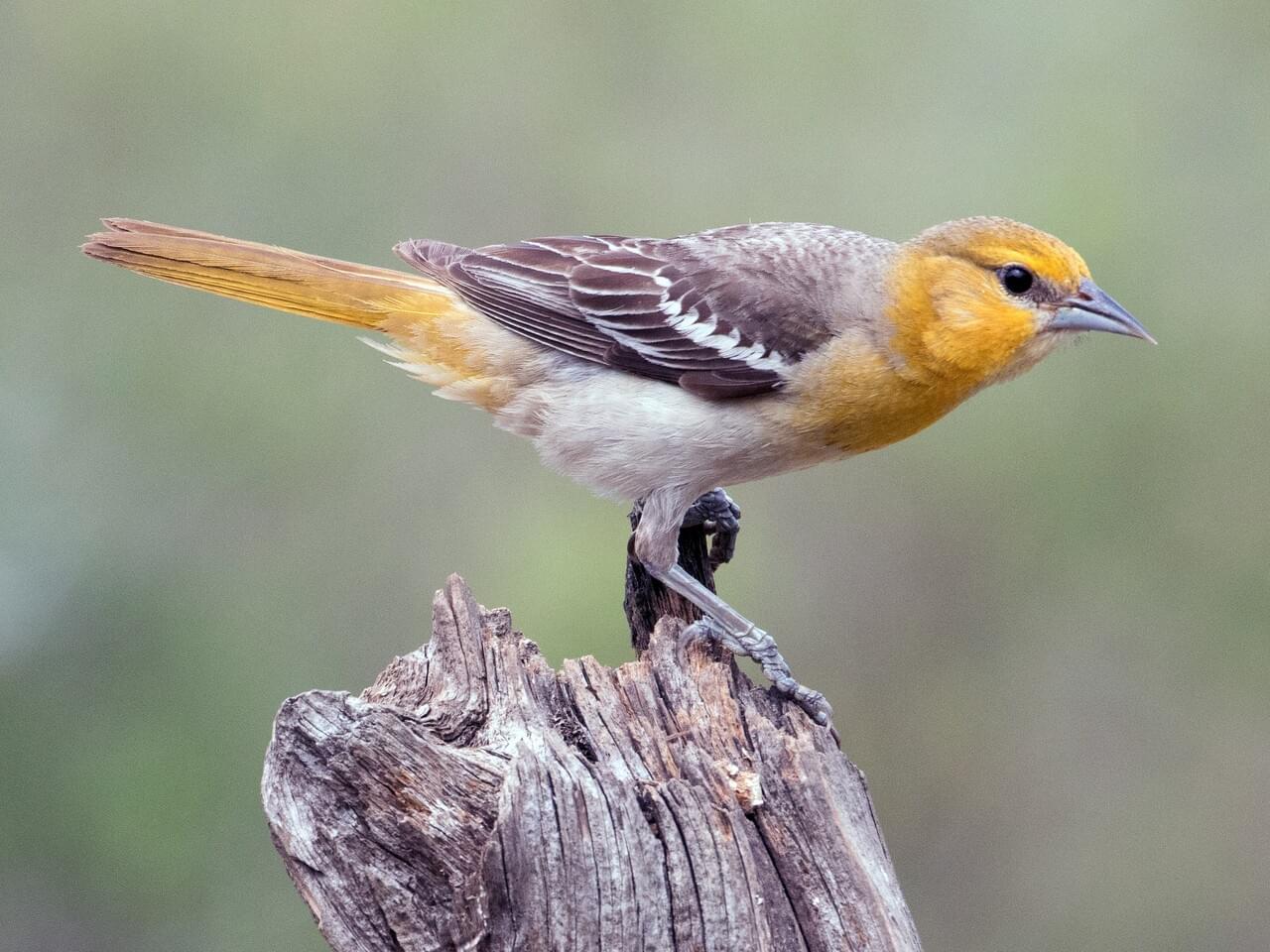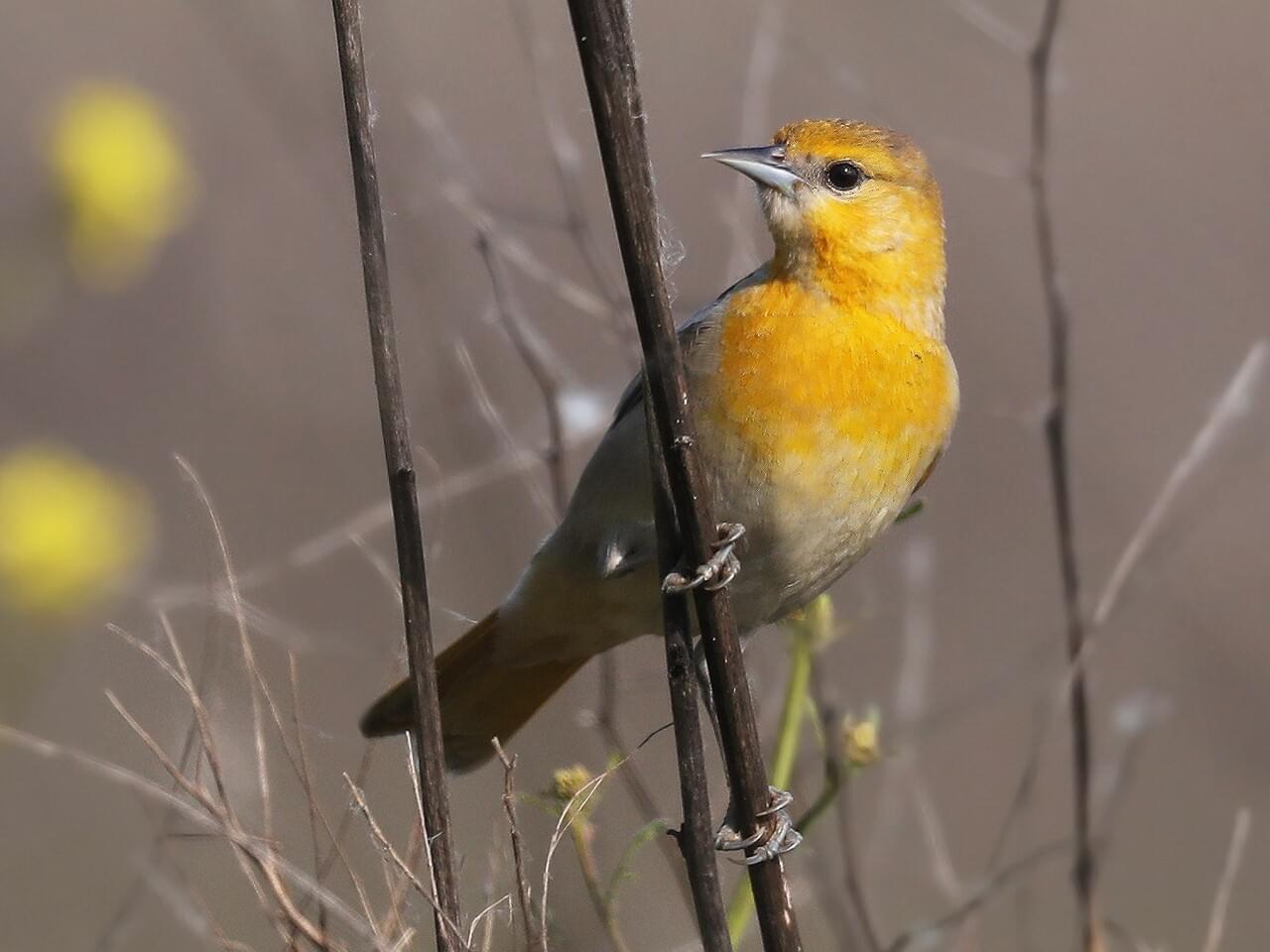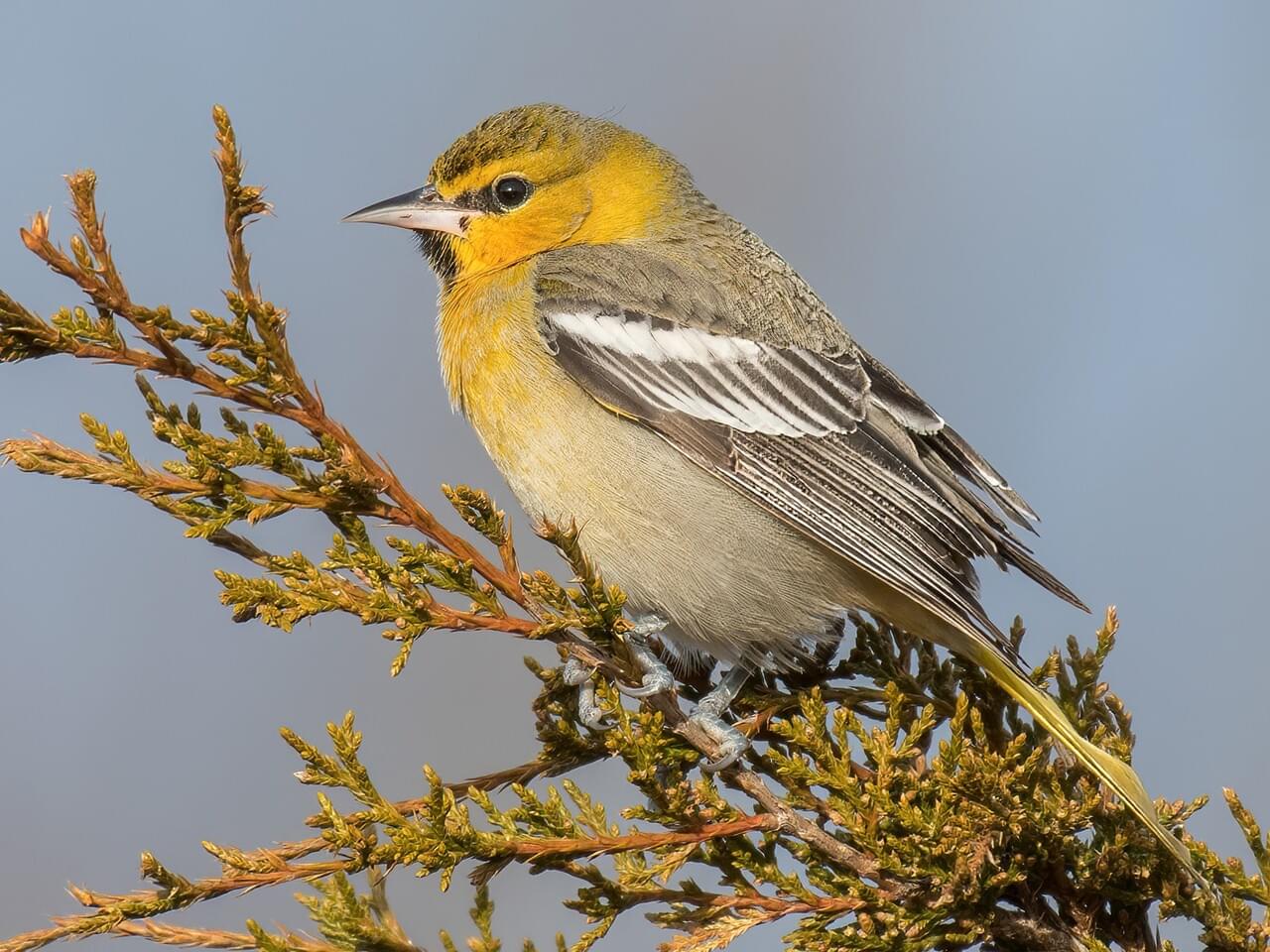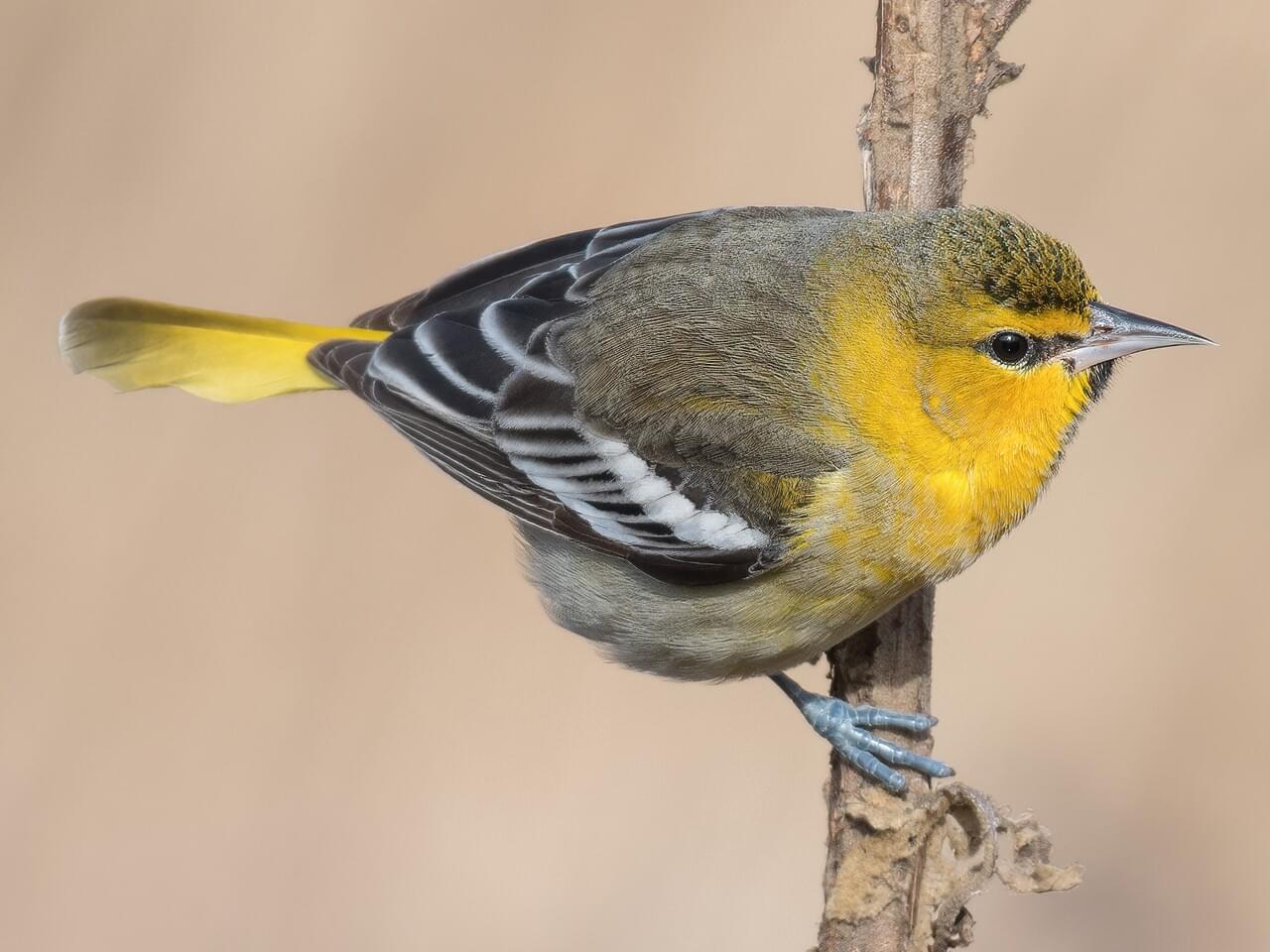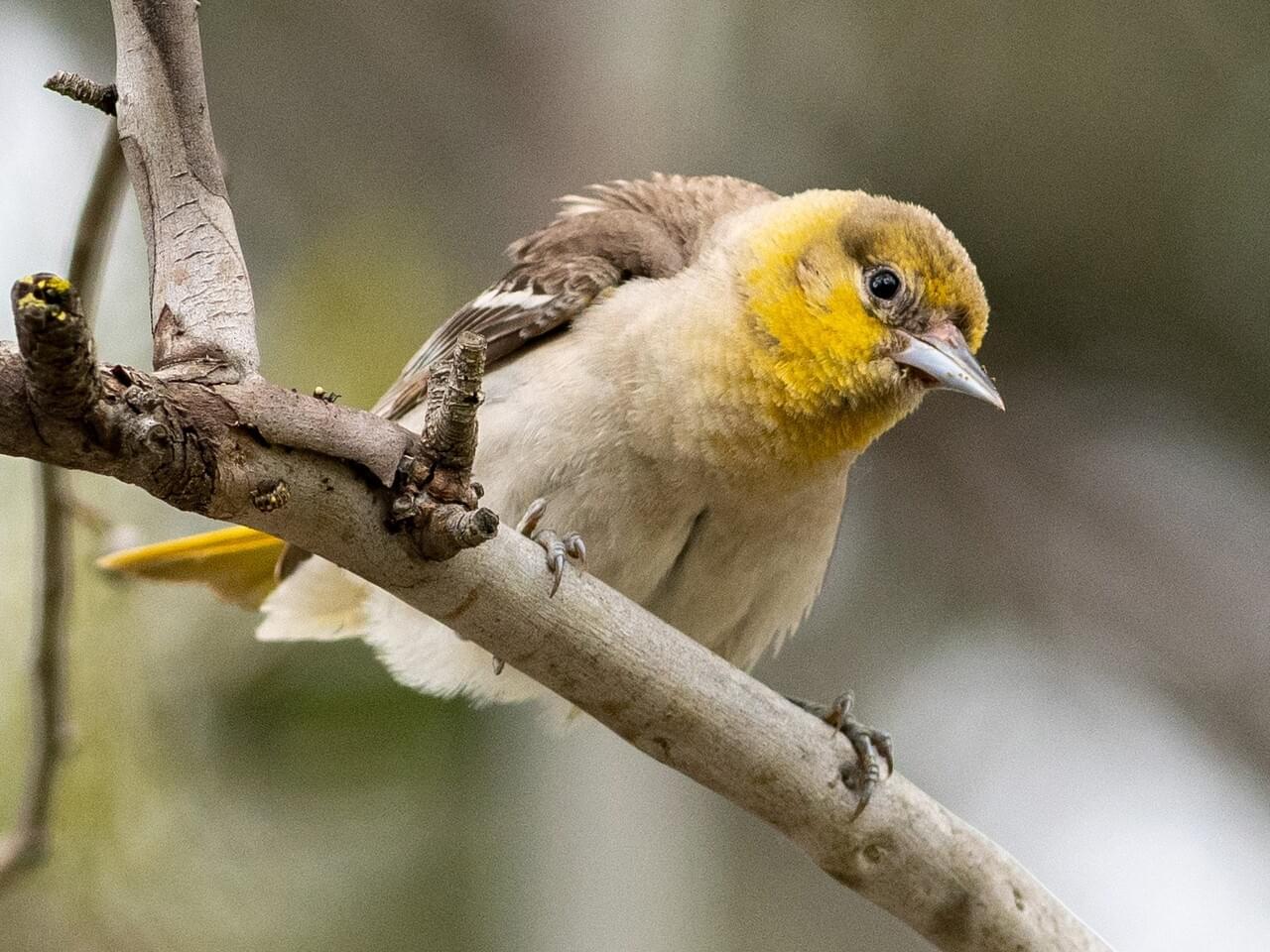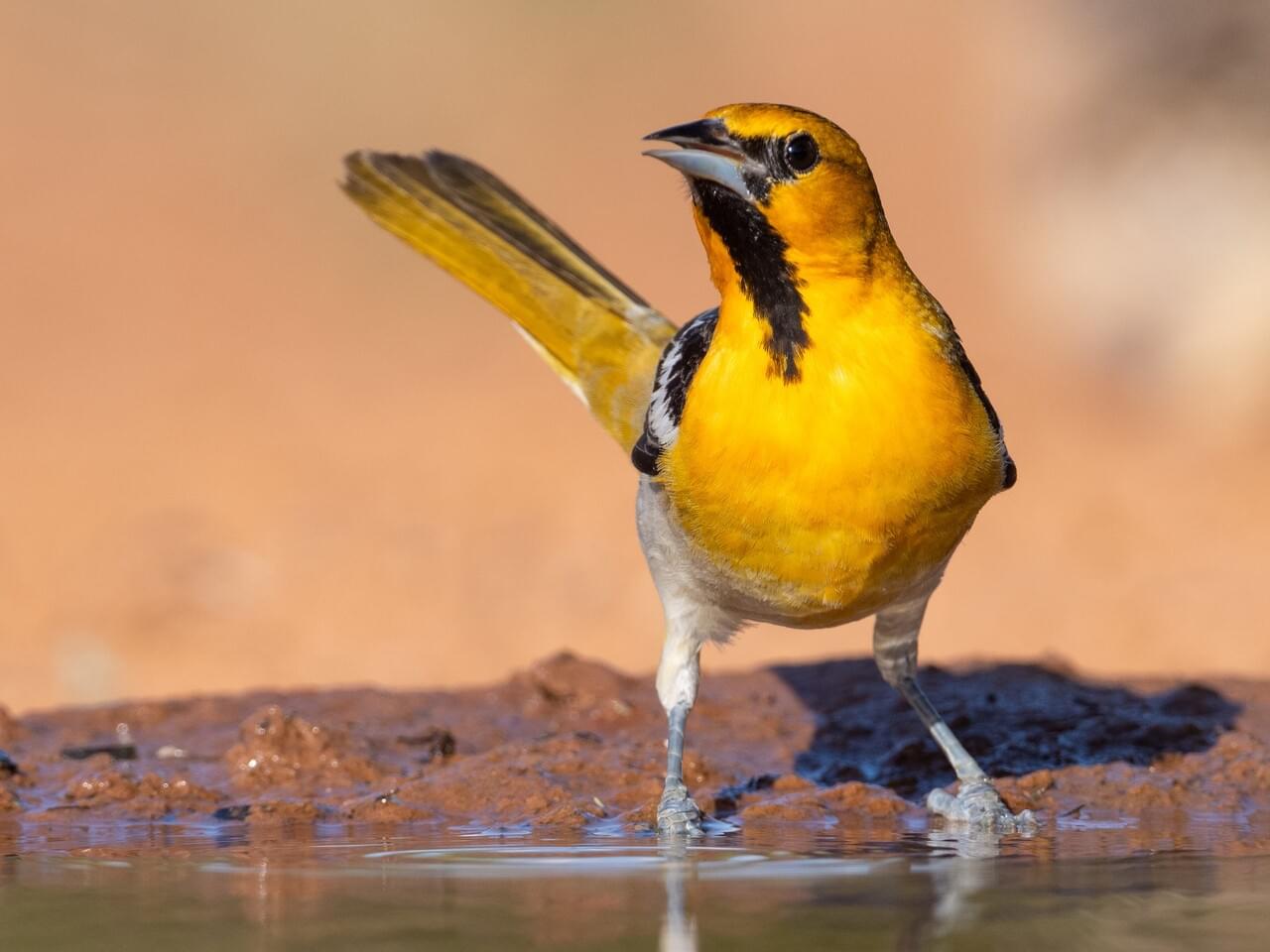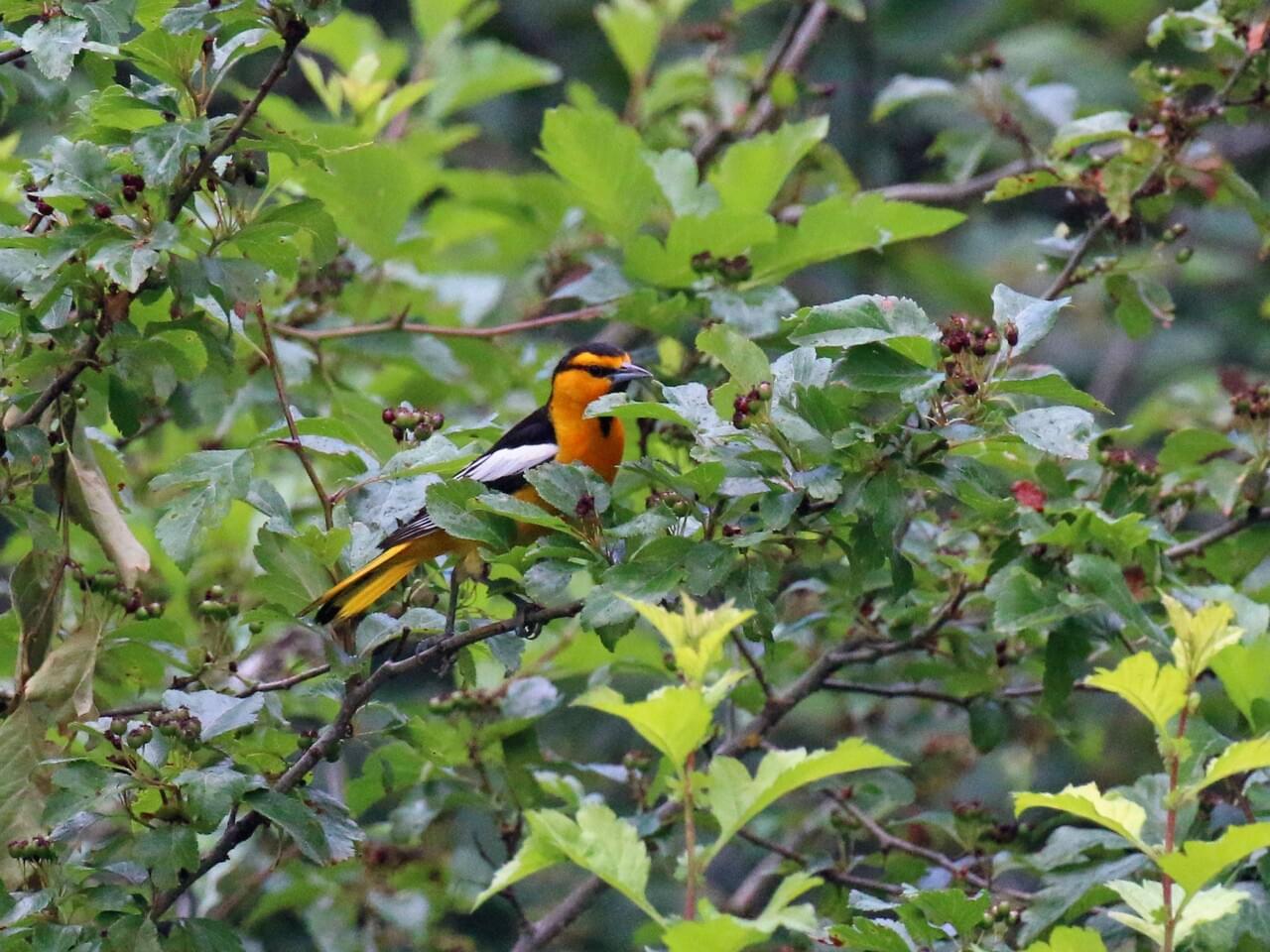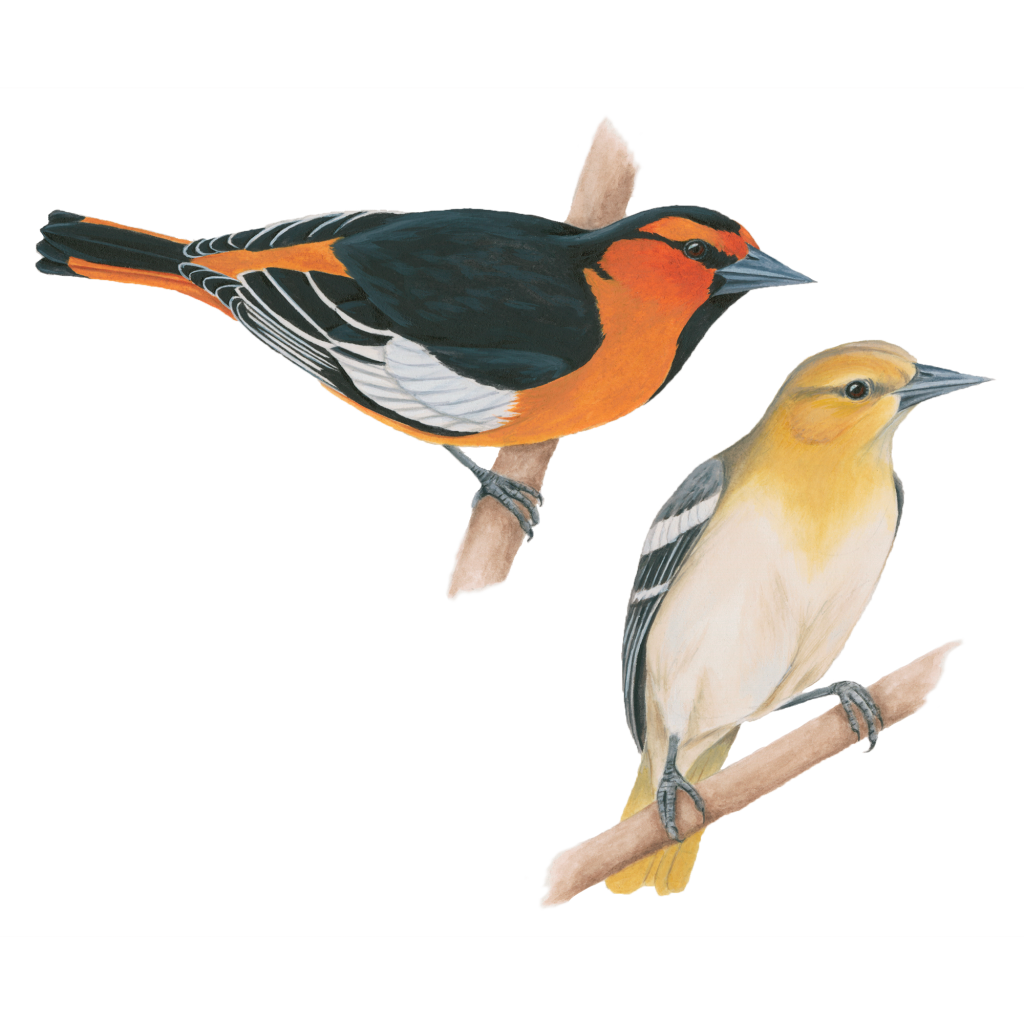 Photo ©
Liz Clayton Fuller
Photo ©
Liz Clayton Fuller
Bullock’s Oriole (west)
Main Focal Species
Nimble canopy-gleaners of open woodlands in the western U.S., Bullock's Orioles dangle upside down from branches while foraging and weaving their remarkable hanging nests. Adult males are flame-orange with a neat line through the eye and a white wing patch; females are washed in gray and orange. In addition to insects, they eat fruit and nectar—a trait some bird watchers capitalize on by offering nectar, jelly, and orange halves in summer backyards. Listen for their whistling, chuckling song in tall trees along rivers and streams.
Range
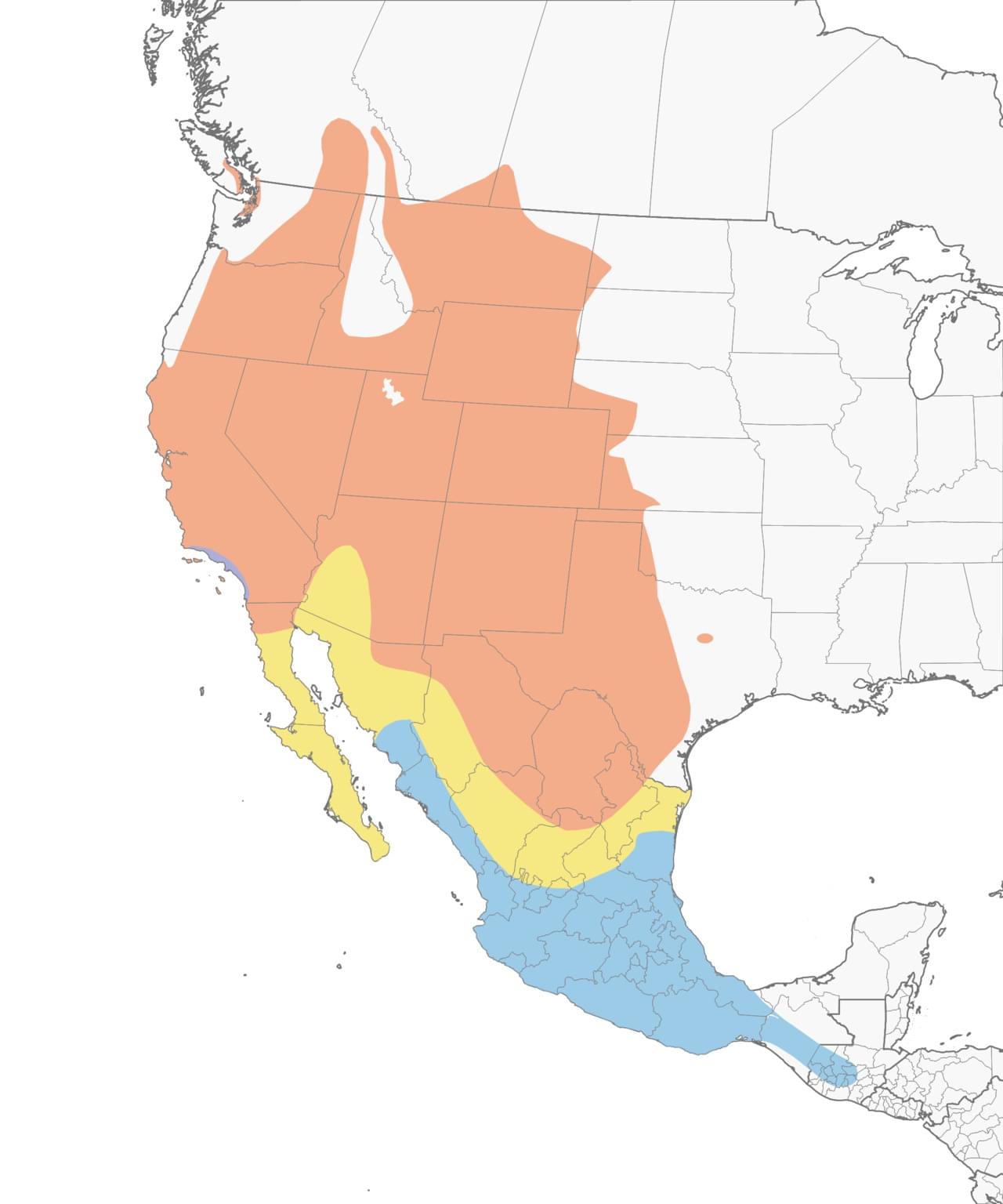
Habitat
Bullock's Orioles breed in riparian and open woodlands, including urban parks. They favor areas where the trees are large and spaced well apart or in isolated clumps. They often nest in sycamores, cottonwoods, willows, deciduous oaks, madrones, and large mesquite trees. Live oaks, pecans, orchard trees, saltcedar and occasionally conifers are also used. This bird gravitates toward larger trees than those used by the Orchard Oriole. They use similar open woodland habitats during migration and winter, and may also be found in pine, pine-oak, or fir forests.
Food
Bullock's Orioles eat insects and other arthropods, as well as fruit and nectar. They glean insects from leaves, branches and trunks; they also pluck insects from spiderwebs or from the air, and take ripe fruit from bushes and trees. Bullock's Orioles use a method called "gaping" to extract juice from fruit, and also sometimes from tough-skinned caterpillars. Thrusting their closed bills through the skin and into the flesh of the fruit or animal, they then pry their bills open inside and lap up the pooling juices with their brushy tongues. Sometimes these orioles skin caterpillar prey by hitting it repeatedly on a branch. Before eating honeybees, they extract and drop the stinger. Common prey insects include caterpillars, grasshoppers, and crickets. The birds also take beetles, ants, bugs, scale insects, stinkbugs, leafhoppers, treehoppers, and small spiders. Rarely, they eat small lizards. They take nectar from agaves, introduced eucalyptus, and other flowers. Commonly consumed fruits include blackberries, raspberries, cherries, and figs. Nestlings are fed crickets, stick insects, camel crickets, cicadas, moth and butterfly pupae, earwigs, ants, and crane flies.
Behavior
Bullock's Orioles glean and probe in trees for insects and nectar, often hanging upside down for extended periods. They make short hops from branch to branch, sometimes flying to the ground to nab insects. Their flight is strong and direct. During migration, they congregate in small, loose, mixed-gender flocks. The male performs a bowing courtship display, hopping from branch to branch and bowing to the female every second or so—all the while singing loudly and exposing his colorful plumage. During nest-building and border disputes, the female may display with quivering wings, holding her body in a roughly horizontal position. Rival males face off at territorial borders and chase each other through tree branches. Bullock's Orioles remain paired up throughout the breeding season but may take new mates in later years. Both members of a pair guard the nest and may mob squirrels, crows, jays, and other predators. Females tend to sing near the nest site, while males often sing elsewhere.
Nesting
The female usually weaves the nest, but the male may assist, with one partner working on the inside and other outside, bringing nest material. The project can take up to 15 days to complete. The nest is gourd-shaped and neatly woven from fibers such as hair, twine, grasses, or wool. It's lined with soft materials such as feathers or the "cotton" from cottonwoods or willows. Nest depth varies, averaging a bit less than 4 inches and ranging up to 15 inches. On average, Bullock's Oriole nests are deeper and wider than those of the Baltimore Oriole, though the opening diameter is smaller.
Appearance
Typical Sound

© Thomas G. Sander / Macaulay Library
Adult Description
Male Description
Crown, nape, and back black; remainder of head and underparts orange-yellow. Black eyeline and black on chin and center of throat. Rump orange-yellow to yellow. Middle tail feather black, the rest yellow, tipped with dusky or black. Wing feathers black, edged white; large white patch on wing.
Female Description
Pale grayish brownish to yellowish upperparts, with indistinct dark streaking, but without black. Yellowish or dull greenish gray underparts, becoming paler on belly. Throat often with some black. Wings gray-brown, with one or two indistinct wingbars.
Immature Description
Juvenile resembles adult female but is generally brighter yellow below, and usually lacks black feathers. Immature male with orange-yellow face, a black bib, black stripe through eyes, a dusky top of head and back of neck, striped back, and orange tail. Wings dusky with two white wingbars. Immature female resembles adult female.
Plumage Photos
Similar Species
Adult male orioles are fairly easy to distinguish: Baltimore Oriole has a fully black head and white wingbars instead of the black eyeline and white wing patch of Bullock's. Adult male Hooded Oriole is orange on the neck and head with a black face; adult male Orchard Oriole is brick red, not orange. Females and immatures are trickier, especially Baltimore. Fortunately, Baltimore and Bullock's have a fairly small range overlap in the center of the continent—where they both occur, look for Baltimore's plainer, less yellowish head and less white edging on the wing coverts. Hooded Oriole of California and the Southwest has a longer tail than Bullock's and a bill that curves slightly downward. Immatures and females are more yellow on the underparts and lack the trace of an eyeline often seen with Bullock's. Immature and female Orchard Oriole is smaller than Bullock's and more greenish-yellow than yellow-orange, especially on the belly where Bullock's tends to be grayish.
Did you know?!
- Bullock's Orioles commonly feed by "gaping": a method of eating where the closed bill is thrust into a fruit, then pried open against the resistance of the pulp giving their tongue access to the juice inside.
- Before eating honeybees the Bullock's Oriole will extract and drop the stinger and then swallow the bee.
- Both sexes of Bullock's Oriole sing, but the males and females sing different songs. The song of the female is similar to that of the male, but it ends differently and with harsher notes. Early in nesting period, and before and during nest-building, the female may sing more than the male.
- Juveniles resemble the adult females but they are generally brighter yellow below, and usually lack black feathers.
